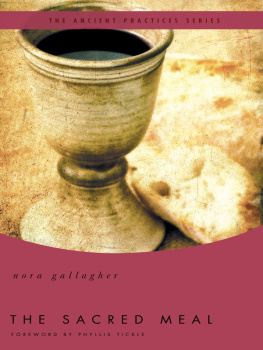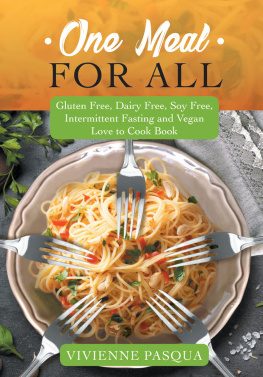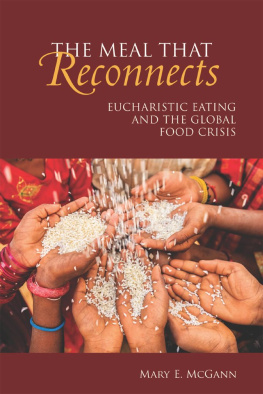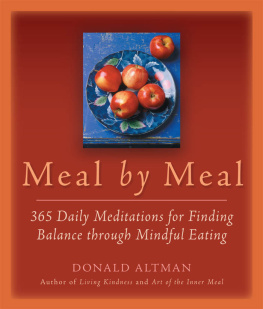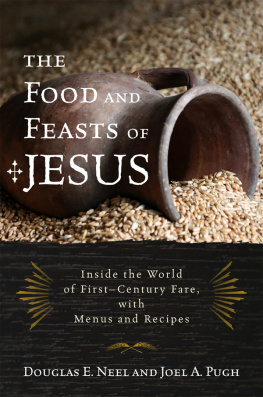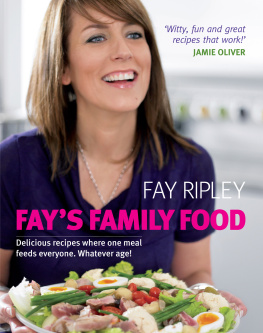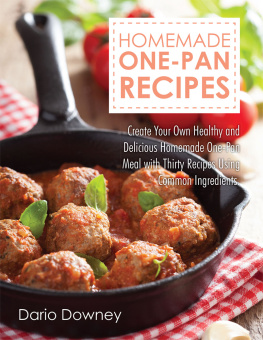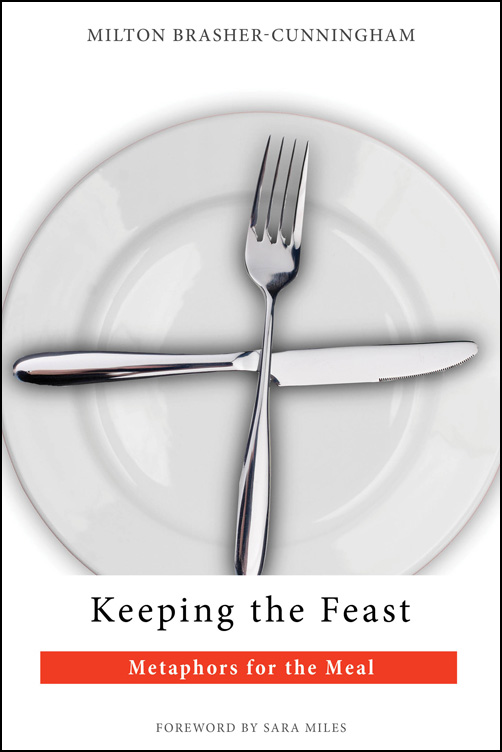
MILTON BRASHER-CUNNINGHAM

Copyright 2012 by Milton Brasher-Cunningham
All rights reserved. No part of this book may be reproduced, stored in a retrieval system, or transmitted in any form or by any means, electronic or mechanical, including photocopying, recording, or otherwise, without the written permission of the publisher.
Unless otherwise noted, the Scripture quotations contained herein are from the New Revised Standard Version Bible, copyright 1989 by the Division of Christian Education of the National Council of Churches of Christ in the U.S.A. Used by permission. All rights reserved.
Morehouse Publishing, 4775 Linglestown Road, Harrisburg, PA 17112
Morehouse Publishing, 445 Fifth Avenue, New York, NY 10016
Morehouse Publishing is an imprint of Church Publishing Incorporated.
www.churchpublishing.org
Cover design by Laurie Klein Westhafer
Typeset by Denise Hoff
Back cover photo by Mark Branly
Library of Congress Cataloging-in-Publication Data
Brasher-Cunningham, Milton.
Keeping the feast : metaphors for the meal / Milton Brasher-Cunningham.
p. cm.
ISBN 978-0-8192-2789-8 (pbk.) -- ISBN 978-0-8192-2790-4 (ebook)
1. Food--Religious aspects--Christianity. 2. Dinners and dining--Religious aspects--Christianity. 3. Lords Supper. I. Title.
BR115.N87B73 2012
248.46--dc23
2012023814
for Ginger
who feeds my heart
Contents

T HE FIRST TIME I read Milton Brasher-Cunninghams recipe for strawberry shortcake, I knew he was preaching the Word. It wasnt just the intriguing idea of adding fresh chopped basil to the biscuits, but his instruction about how to do it: A handful, I guess; I dont really measure how much.
Being a cook or a Christian is all about practice, though some would prefer it to be about rules. There are, to be sure, some bottom lines of physics and faith, as teachers from Harold McGee to St. Benedict make clear in their respective disciplines. You cant uncook a hard-cooked egg, for example, any more than you can become a monk without praying. And there are some important traditions that remain of use, whether youre following Escoffier or David Chang, the prophet Amos or the prophet Dorothy Day.
But you cannot measure your way to a perfect omelet, any more than you can study your way to grace. Beyond mastering the principles, it takes a lot of just plain doing the real thing over time: the repetitive chop and toss and saut night after night that teaches what a handful means; the daily muttering over the well-worn pages of the Psalter that teaches how to improvise a chant tone. Most skill and even much Wisdom, as Scripture suggestscomes through practice. Especially, I think, the practice of failing: the broken Hollandaise, the broken vows, the inevitable mistakes that come when mortals attempt something that really matters.
As Milton Brasher-Cunningham knows, and tells beautifully in this book, practice isnt a solitary business. You cant have a restaurant, or a church, alone. You need to stand the heat with other people, listen to other people weep, let other people pop fresh strawberries or little pieces of communion bread into your mouth. And doing this takes practice, too. Sometimes you need to spatter your saut guy with hot grease and step on your organists toes and say sorry; sometimes you need to let the dishwasher teach you to poach fish or the teenagers teach you to do scriptural exegesis and say thank you. Always you need to cook for people you dont know, pray for people you dont like, and eat with whoever shows up.
Of course its not convenient. Preparing and eating meals with other human beings is frustratingly messy and slow, whether you do it in a home or a restaurant or a church, and the meal wont always taste the way you expected.
But cooks and Christians know something thats far more important than convenience. Listen to the Word according to Milton Brasher-Cunningham: dont eat alone. He knows, through practice, why.
Dont eat alone, this book offers, because unexpected things happen when you prepare food and eat with others. The same old lunch rush with the same old fry cook can turn into a hilarious ballet of sweaty solidarity; the same boring breakfast bowl of Cheerios poured out for a little sister can allow a shy second-grader to share her lunch; the same sticky sip of sweet port handed to you by the same cranky deacon can blossom on your tongue like the crazy fruit of a living vine, and give you the blessed nerve to pass the cup on to a stranger.
Dont eat alone, because sharing food reveals the new thing God is always making. In its unpredictability, a meal cooked for and eaten with others takes us beyond ourselves, to an experience that cant be mechanically reproduced, perfectly measured, or privately managed.
Dont eat alone, because the sacrament of communion reveals how the one who came to turn over the earth, plant a vine out of Egypt, thresh grain, fill new wineskins, and break the loaves is always extravagantly feeding the whole world. How the one who shares a table with beloved friends, with gluttons and drunkards, with unwashed sinners, is always inviting everyone to partake. And so whenever we remember him as we eat with friends, or whenever we ask strangers to abide with us and break bread, he is revealed.
God feeds all living things, testifies the psalmist. On the holy mountain the Almighty is preparing a banquet of rich foods and well-strained wine, proclaims the prophet. All you who are hungry, come and eat without price. And Christ Jesus, who repeatedly calls his followers to the practice of feeding othersa little girl, a huge crowd, his sheep, himself prepares the supper, serves the supper, and himself becomes the supper for us all. I am the bread of life, he says. Take it and eat.
We never have to eat alone again.

Summer 2012, San Francisco
T HE POSSIBILITY FOR this book began because Nancy Bryan sought me out after reading my blog, Dont Eat Alone (www.donteatalone.com). She has been everything from encourager to editor in this process and I am deeply grateful for her tenacity and support.
I learned about church in Zambia, Kenya, and Texas all the places I grew up. As an adult, I found community in University Baptist Church in Fort Worth, Texas; Royal Lane Baptist Church in Dallas; First Congregational Church UCC of Winchester, Massachusetts; First Congregational Church UCC of Hanover, Massachusetts; North Community Church, Marshfield, Massachusetts; and Pilgrim United Church of Christ, Durham, North Carolina.
Robert Ahrens, Tim Miller, and Amy Tourniquist are the chefs who hired me to work in their kitchens. Dave Alworth, Billy Keith, and Abel Guevarra top the list of many who made it both fun and meaningful to be in the kitchen.
The list of those who have contributed and continue to add to the conversation of how we live our lives together includes Joy Jordan-Lake, who both writes and encourages wonderfully; Burt Burleson, who is my most enduring friend; David Gentiles, whom I still miss; Billy Crockett, whose friendship birthed some great songs, moments, and memories in my life; John Brashier and our family line of interns; Christy de Sisto, who grew from intern to friend; Ken Hugghins, for the song title and the tamale trailer; Ken Orth, for listening well and loving whole-heartedly; Doug Aaberg, whose friendship has travelled well; Don Remick, for our days in Hanover; Gordon and Jeanene Atkinson, whose connections with Ginger and me run on multiple levels; and Nathan Brown, who shares my love for reading and writing poetry. I am also grateful for the twenty-or-so years of youth camp with UBC, Wilshire Baptist Church, and the other camps that have graced my summers over the years.


